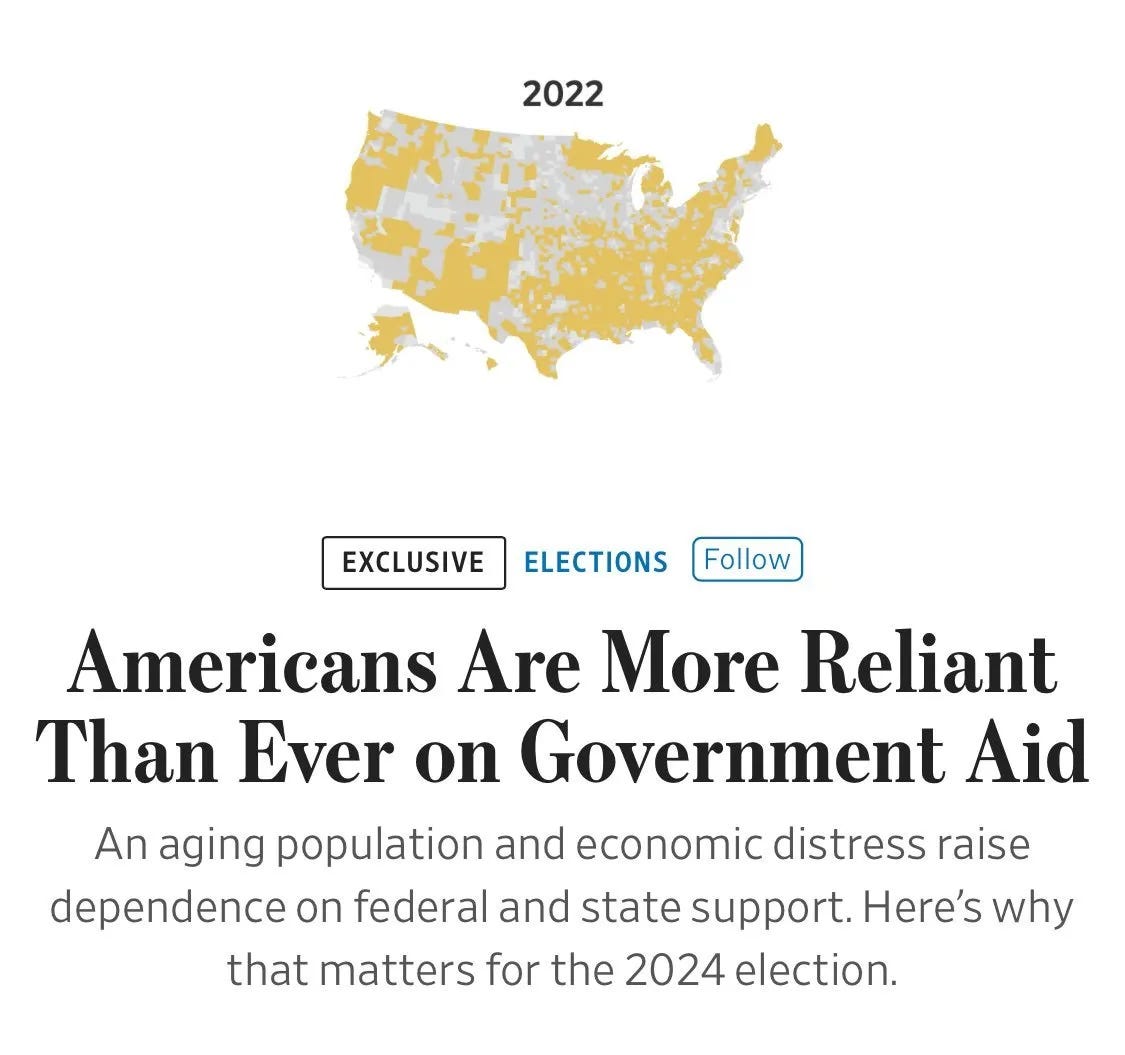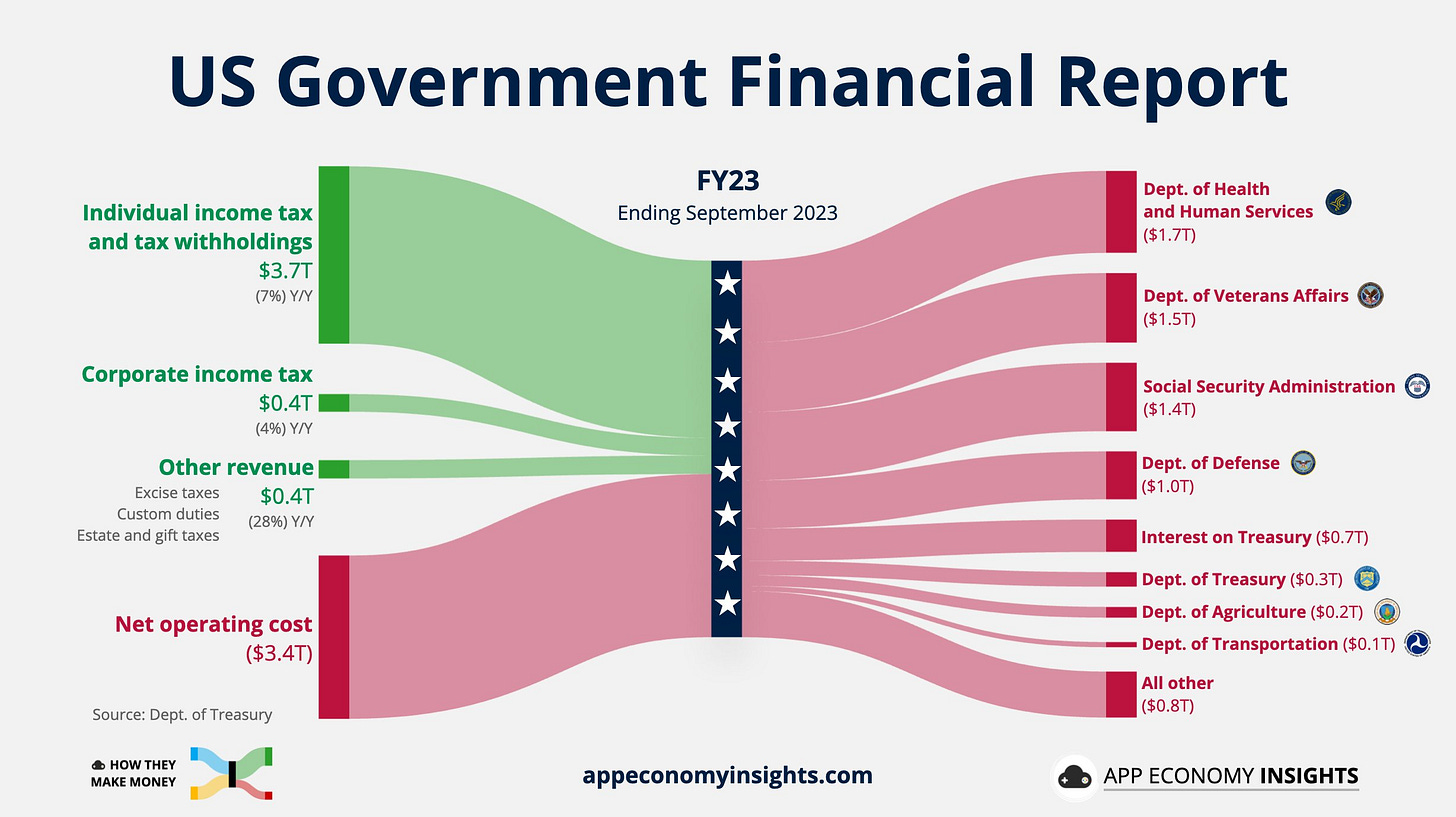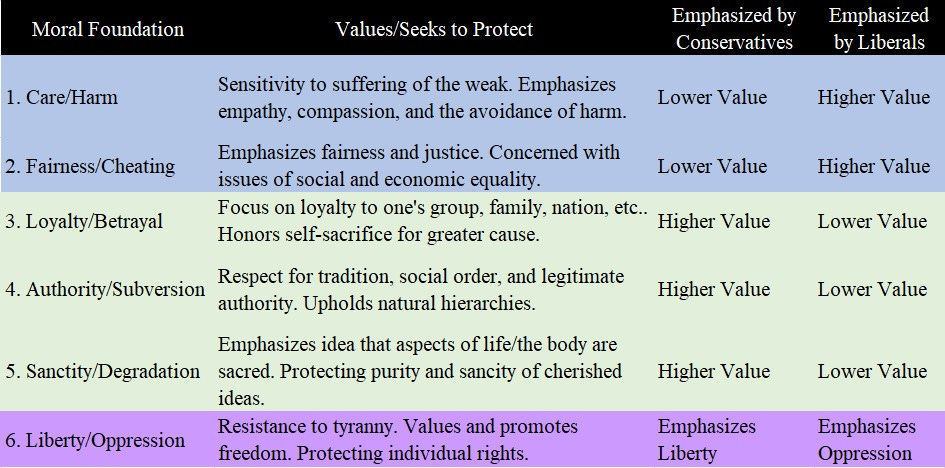Gain Dependents, Gain Power
Perverse incentives in prosperous democracies
This is a sort of part II for the essay We'll Give You Things > We'll Leave You Alone. It is much more quantitative and empirical than its predecessor, while reinforcing a similar logic and game theory. Enjoy.
When you're dependent on someone, they wield power over you. The more dependents you have, the more power and influence you have. Dependents do what you say and are more loyal, because they have no other choice. When a child is dependent on its mother, it’s a healthy dynamic; when an adult is dependent on the state, it’s a corrosive one, ripe for exploitation. It turns an adult into a child, and the state into a parent.
Understood this way, the dominant political strategy in a wealthy democracy isn't to gain support for your cool ideas based on The Issue Of The Day, but to gain dependents who cannot defect. Loyal soldiers at the ballot box that won’t vote against the hand that feeds them. Internalizing how democracy operates as game theorists, not political analysts, is the useful way to navigate how and why political policies and the Overton Windows drift the way they do.
If every vote counts the same and you’re campaigning in a prosperous country, what’s a winning political product? Directionally speaking, should it trend towards “pull yourself up by your bootstraps” or should it incrementally inch towards “you see all this wealth, if you vote for me, I’ll send some your way”? What’s the best way to foster allegiance and loyalty?
The answer to this isn’t a mystery, it’s been playing out empirically over decades. The game theory of democracies creates a structural political lurk leftwards in electoral iterated games. The best way to win a kinetic war is coordination; the best way to win a political war is coordination. An excellent way to instill coordination among millions of people is incentives. The kind of incentives that once you get them, you can’t do without.
“Conservative” or “liberal” governments become a distinction without a difference when you zoom out over 10-year+ timelines in wealthy democracies. It doesn’t matter who’s elected, the machine keeps steadily engorging itself and lurching in one direction. Because state dependents keep growing, because it’s empirically the winning formula to cultivate children dependents in wealthy democracies. You simply buy votes, because you can, because it works. Swims left.
You Are Selling a Political Product, Who is Buying Your Product?
The high-agency, are, at best, 20% of your population. You exist within an “every vote counts the same” democracy. The low-agency constitute 80%. The Pareto Distribution never misses. You need 51% to win. And you are rich, with the ability to issue debt and extract from the productive to sell your political product. What’s your strategy?
You’re not thinking ten or twenty years from now and about the long-term health of your nation, that adult stuff doesn’t win elections. You’re thinking what gets me into office today? We’re in the realm of high-time-preference sales pitches.
Government transfer payments have quadrupled since 1990. Swims left.
Handouts. Inexorable government growth. A leftward saunter of the Overton Window of entitlements. This is what it looks like. This is what creating dependents looks like. This is, sadly, what a series of successful (and myopic) political platforms looks like.
You know why libertarian ideas don’t sell? People aren’t buying them. They’re products for at most 20% of your population. Nobody wants your bootstraps, and by nobody I mean the people who benefit if the above chart keeps going up and to the right: the 80%. Even some of the 20% are probably milking the teat at this point.
Everything gradually trends towards policies of low-agency appeasement, because you’re trying to expand your base of dependents voters. The Overton Window creeps accordingly.
Pitch Me
The high-agency are interested in a political product that fundamentally promises to leave them alone: lower taxes, less regulation, less government involvement. Please go away. Less is more to them. These are the policies of a shrinking government and an ascendant nation.
Pitch: “We’ll leave you alone”
The low-agency want to know what you can do for them. You can get their vote by selling them on what you’re going to give away: more welfare, more subsidies, more transfer payments. More is more to them. A product of ‘gimmie gimmie’ is the surest path to their vote, and subsequently their dependence. Their vote goes to the highest bidder, and there's way more of them, and every vote counts the same.
Pitch: “We’ll give you things”
Who do you structure your product for? How do the real-life trends stack up against this theory?
Per-capita transfer income has expanded 3x faster than other income over the last 50 years. Swims Left.
The Left advances by buying voter allegiance via creating dependents. “We’ll give you things”.
The Right must compete by selling a variation of the same product, but a little less so (they’re conservative, after all). The conservative product of “We’ll leave you alone” does not sell in a backdrop of prosperity, so the message becomes “We’ll give you things too, but not as much”.
We'll give you things > We'll leave you alone
This means you have a political choice of either fast liberalism, or liberalism going the speed limit. Conservatism is liberalism driving in a small town; liberalism is liberalism on the Autobahn.
The transfer payments tell the tale. The turgid fiscal budget will never be brought to heel out of “principled political beliefs”, but when it simply ceases to be a viable strategy to keep doing so. You can’t campaign on reducing handouts until you physically can’t anymore. For the same reason a star cannot grow forever, those transfer payments do have a ceiling.
The inexorable nature of this problem is clear, and it’s simple when you strip it down to its constituent parts. We deceive ourselves that these are complex McKinsey-consultant Excel-sheet-style problems, when it’s a matter of terminally corrupted incentives for both politician and the populace. The flaws are structural, the distal cause is democracy and its selection effects.
Selling Magic
Things like price and rent controls make perfect sense when you understand the perverse incentive structures of a democracy where the low-agency and high-agency have equally-weighted votes.
When you sell your political product, the messaging is moral in nature, not factual. Your fact checks could not be less interesting. People want to know if the stance feels right. Does it sell me on the things I think I deserve, with moral branding that speaks to my beliefs? If the answers to both are yes, you’ve got a great low-agency political product. (Related essay: Yarvin, Rufo, and Endless Factual Sediment)
In the case of price controls, you’re selling a moral stance of “this is more fair” (fairness/cheating moral foundation), and it accomplishes it via subsidizing the 80%, by denying the 20% money they would have made at regular prices. That’s a winning political message and product.
Those who approach this as an economic question often find themselves thoroughly confused by the persistence of such policies. They protest, “This never works, look at my studies!” and fail to recognize that economic efficiency is not the operative standard. You don’t convince anyone to change moral stances with nuanced charts.
Also, what do you mean by “works”? “Works” for who?
That’s how you get stuff like this, and you keep getting it, even when it “makes things worse”. Makes things worse, for who…?
This isn’t wild at all. It’s completely rational when you understand the game that’s being played on its real terms, not how it’s nominally presented.
How to determine If a policy “works”
First you need to define the genuine objective. Because on different planes of analysis, the same policy could be a complete failure or be a wild success.
Say you’re a politician who pitched price controls: you appealed to a moral stance, you bought votes with money that’s not yours, got elected with it, and created a problem, because price controls don’t actually work (no shit).
So your solution to the problem you created is to sell the same product, again! “Those fat cats got greedy and thwarted it, so we need more of the morally-just thing I did”. Now you can get re-elected to fix the problems you caused and continue to pin its failures on “real *insert my policy* has never been tried”.
A formula for state expansion and winning elections in affluent democracies:
Provide morally-appealing magic solution to real problem → create bigger problem → claim the solution to the bigger problem is more magic → get re-elected promising more magic → repeat.
Manifestly stupid economic stances are routinely trotted out during election time (unrealized capital gains taxes, ha). That’s because you’re not selling your ideas because they're any good, you’re trying to win iterated games with them. You’re appealing to moral beliefs that fundamentally espouse “You deserve more than you have, and I will give that to you”. That’s a great message and product, it sells incredibly well to voters.
What’s the libertarian/conservative product? “You’ll get less, but that’s actually good for you. Also don’t you care about a balanced fiscal budget?” Ew! Do not want!
I’m sorry, you think the lowest-common-denominator voter is going to fact check this and change their mind because of its factuality, JD? They vote on vibes.
That’s how politicians understand if a policy “works”: does it keep getting me elected. If it gets me elected, then it works great.
Don’t analyze if the policy “works” as in “will it produce a good outcome?”. Analyze it from the lens of “will it recruit new voters and please my constituency?”; from this lens, yes, price controls “work”. Your Harvard MBA won’t be of much use here, because this isn’t an economics policy, it’s a moral one.
These outcomes are not confusing when you understand the game that’s being played.
Conservative Solutions That Can’t Conserve Anything
The US spends ~$6.2 trillion per year, and takes in ~$4.4 trillion; this is the low-agency dominant strategy, in chart form. You know what passing a tax cut does? It just makes the deficit larger, because no politician will win campaigning to take away those sweet sweet transfer payments. That’s the “conservative” solution: just issue more debt so we can “conservatively” cut taxes and do nothing to spending. Because it’s electoral suicide otherwise. Pure high-time-preference corn syrup for breakfast, lunch, and dinner.
(God help you if you thought about the Laffer Curve just now when I mentioned what a tax cut does. There is a special place in “achtually” hell for you!)
It’s a running joke that conservatives conserve nothing, and it’s true, because they can’t, because they’d lose if they did, because conservatism is fundamentally an appeal to responsibility and duty. This moral messaging is increasingly abandoned in a backdrop of comfort. Luxury conditions beget luxury beliefs, and luxury solutions follow suit.
People don’t do responsible things because they want to, but because they have to. When life is pretty darn comfortable, responsibility doesn’t sell. When life loses that comfort, conservatism is ascendant. What’s the saying again? Good times, weak men, hard times…
Selling conservatism in a backdrop of prosperity is like trying to grow sunflowers in the winter; the environment just isn’t designed for it.
This is why when conservatives are “in power” (lol), the state does not shrink. Ask yourself seriously why. Not in a superficial way where the conclusion is “they’re all corrupt I tell ya!”, seriously reflect why it’s basically fucking impossible for anyone to do conservative things over any material timeline across the West. Again, we’re talking 10-years or more, not short-term culture wars stuff that oscillates on shorter timelines.
Reagan won in 1984 with 49 states, Brexit was cool, and look how that’s worked out for you. Conservatives can have waves of pushback energy over shorter timeframes, but things always revert to trend so long as the backdrop of comfort is there. You will not shrink this beast because you want to, but because you have to. Cthulhu swims one way, until he can’t anymore.
False Promises Against Scarcity
“Economics isn’t a zero-sum game, we can just keep growing and growing and growing and growi…”
Embedded in neoliberal policy presumptions is infinity economic growth. Number must always go up. If it doesn’t keep going up, this whole thing comes crashing down. On a smaller scale, we’d call this a Ponzi scheme; at the national scale, we call this being a good economist. Growth for growth’s sake is the creed of the Brookings Institute, and the cancer cell.
The state religion policy prescription of “GDP go up forever” is predicated on a false promise against scarcity. A promise of eternal growth is a vow against scarcity, which stands in opposition to reality. It's reliant upon something unsustainable. Again, at a smaller scale, you’d readily recognize this as a Ponzi scheme; this concept scales.
"Post-scarcity economics" is every bit as stupid as living on Earth and saying "post-gravity physics".
The economic scripture of Eternal Growth is a mystical belief that subverts the natural law of finite resources. The only way you can grow forever is if the “growth” is fake financialized games. A spreadsheet economy can grow for eternity; a real-life one cannot.
The state’s Yale-approved economic model does not understand concrete, holistic reality on these terms. The physics of financial natural law exposes this fallacy for what it is: a ruse.
Perma-growth GDP is predicated on infinite debt and coercive resource distribution (higher and higher taxes) to keep up the song and dance. Those transfer payments have a ceiling, because growth has a ceiling.
A star does not expand forever and a tree does not rise to the heavens; if it does, it’s not a tree.
The End Game of Wealthy Democracies
If simple voting majorities are all you need, and the lowest-common-denominator ballot is weighed the same as the most-productive members of society, you have a terminally flawed system on your hands. You have defective incentives geared to maximize high-time-preference expediency, and you get political products that speak to this. Moral hazard, but it’s the people’s moral hazard! Everything is made wholesome, decent, and true if you append the word “democratic” to it.
Selling to the industrious libertarian types, the business owners, the entrepreneurs… there’s just not enough of them, and you need raw numbers to win in a democracy. The plebs don’t want your low-time-preference adult solutions. What do you do as a politician? The selection effects for policies are apparent. Swims left, financially and culturally. Entropy ensues. Bloat. Decadent decay. The Machine never stops expanding until it implodes under its own weight.
The low-agency dominant strategy only works in prosperous countries; because how much you can redistribute correlates with how wealthy you are. Because only when there’s money and power present can you credibly campaign on reallocating it. If the country is poor, you simply don’t have much to give away.
You need to amass resources before you have the luxury of redistributing them. If you’re poor, you must structure your society around galvanizing the high-agency to produce and build. As you get rich from this, redistribution to the bottom 80% becomes the focus. Masculine because you have to, feminine because you get to.
Enabling the high-agency to create wealth is the dominant political strategy in ascending nations. “We’ll leave you alone”.
Enabling the low-agency to access that wealth is the dominant political strategy in descending nations. “We’ll give you things”.
Homeostasis is embedded in all complex adaptive systems. Entropy finds its way into all things. A star, and GDP, cannot grow forever.
Subscribes and shares are very much appreciated. If you enjoyed the essay, give it a like.
You can show your appreciation by becoming a paid subscriber, or by donating here: 0x9C828E8EeCe7a339bBe90A44bB096b20a4F1BE2B
I’m building something interesting, visit Salutary.io
Related essays:
Midrange Jumpers for the Middle Class
This chart made me sad. It’s the inexorable result of moneyball. When every decision is maximally maximized, when every choice is an expected-value calculation.
Yarvin, Rufo, and Endless Factual Sediment
This is a prelude to the Biofoundationalism series of essays that I’ll be publishing here soon.
Chevron and The Hawaiian Judge Dominant Strategy
The Chevron doctrine has been overturned by the Supreme Court. It’s a blow to regulators, because Chevron basically said they could interpret somewhat vague laws how they saw fit, and then apply what they believe it should mean. The conflict of interest is apparent. In a country mostly ruled by unelected bureaucrats, it’s positive to have it gone.




















Yes, as a party they are irrelevant. My reference to libertarians are regarding morality and policy stances that fundamentally orient around the liberty/oppression plane, which many conservatives do emphasize.
once you start to distill democracies to what they actually are — machines to service the lowest common denominator, you realize a high agency (libertarian) society is a false hope. this is why monarchies are cool, to some extent. you only need 1 dude to understand what “works,” and not in the sense of expanding your constituency (there is none!)